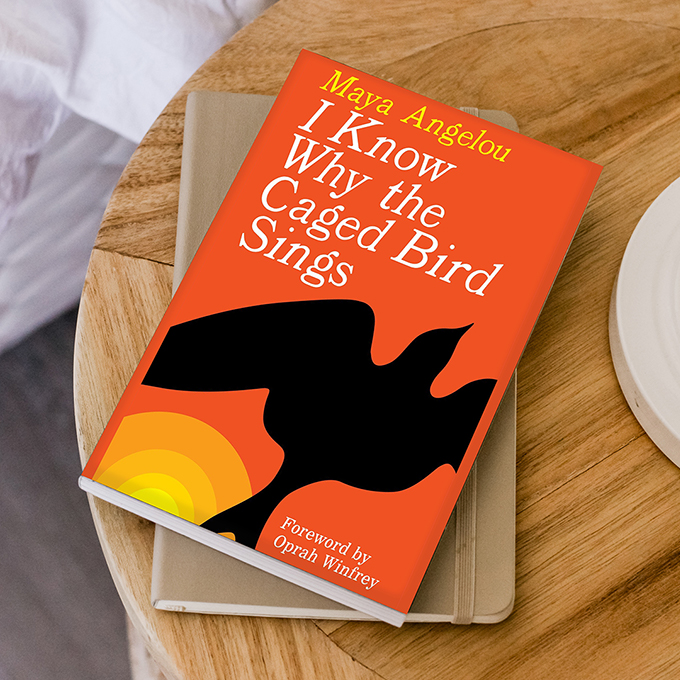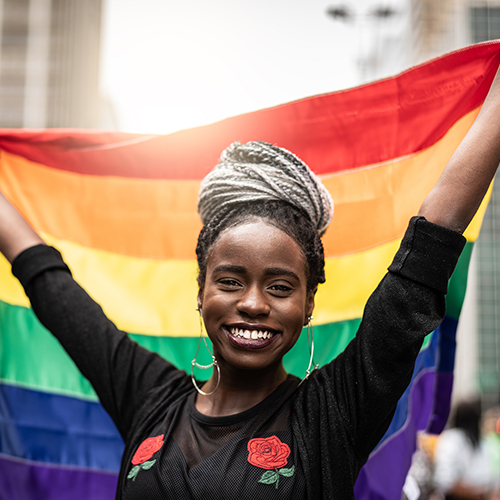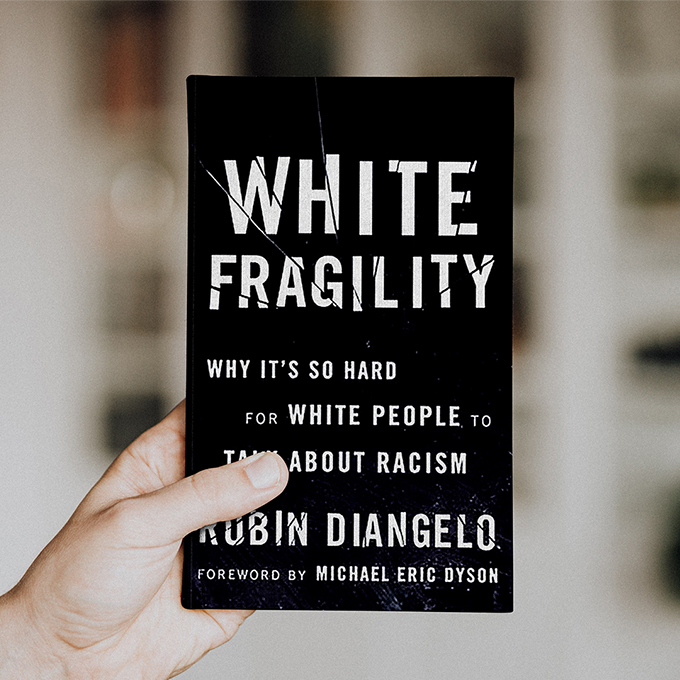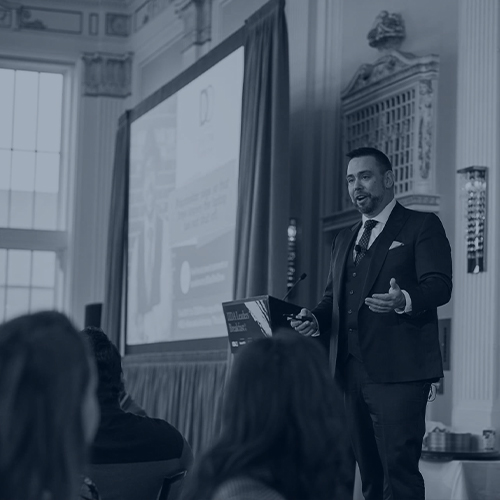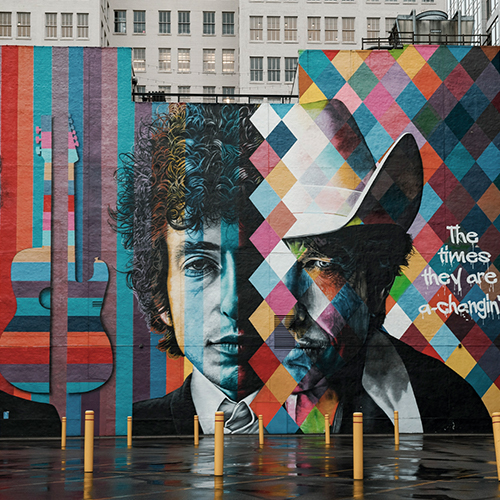Day One Reads – I Know Why the Caged Bird Sings
“See, you don’t have to think about doing the right thing. If you’re for the right thing, then you do it without thinking.”
When I posted my last Day One Reads profile of Robin DiAngelo’s White Fragility: Why It’s So Hard for White People to Talk About Race, I was reminded of how challenging and nuanced the process of better understanding systemic racism was going to be. Many people (almost all white) reached out to say they had also been deeply impacted by the book, while others (some black and some white) quietly reached out to indicate they felt my highlighting of the book was problematic. More than one passed along this particular link as representative of the various criticisms of DiAngelos’s work.
As I reviewed the links and materials sent to me, I came to see a great deal of validity in the criticisms being identified. At the same time, I could not deny that the book had truly impacted me. I had chosen it because it had been included on multiple resource lists provided by black-led organizations and had certainly succeeded in helping me embrace a reality: I was not an anti-racist and I wanted to be. In fact, I did racist things. White Fragility helped me recognize many of the instinctive ways I had denied that fact and reinforced the systemic racism upon which our society is based. That was undeniably valuable to me.
So, I’ve come to settle here for now: White Fragility is a flawed book, but not a “useless” one. It succeeded in making clear to me I needed to read more books on the subject, and for that alone I’m glad that I chose to read it. I’m also grateful to the people who reached out to help me view it from a more critical lens because I think doing so, coupled with my upcoming reading list that is exclusively black authors, will actually make the book more useful.
I do know that some who reached out to criticize or educate me on the book indicated one of their main concerns was that this would be the ONLY book on anti-racism that I chose to feature, and if that was the case, choosing a book by a white author was a questionable or inappropriate decision. They’re 100% correct on that, and as I mentioned in the White Fragility review, my ignorance to the fact that DiAngelo was not a black author when I started the book was evidence of my unconscious racist thinking. One thing is clear: reading any one book on this subject isn’t enough. Many who wrote me made it clear that there were many books superior to White Fragility and encouraged me to make sure that as I went through my exploration of the ways to move to a more anti-racist life, I read as many books as possible by black authors on the subject. They’re certainly right on that, as the current book I’m reading for Day One Reads, How to be an Anti-Racist by Ibram X. Kendi is far superior. In fact, I’m only halfway through and already has more “pulled passages” than any other Day One Reads thus far.
Long story short – I do wish I had not made White Fragility my first book in my journey to become an anti-racist, but I do feel that it will play a beneficial part in my overall education on the subject. The best way to get the most out of White Fragility is to make sure it’s only one perspective of many you incorporate into your understanding of racial issues, that you educate yourself on some of the shortcomings of its perspectives, and don’t look for the solution to these deeply embedded problems in any one source.
As a side note, one of the reasons I think these interactions were so helpful and productive for me was that all of them were send to me as a personal message, not a comment on the Day One Reads post itself. That allowed us to keep the focus on understanding each other without worrying about who might “win” the discussion in the eyes of the people who read it. Most difficult conversations are much more productive without an audience…at least an online audience.
That being said, on to this week’s book by a rather remarkable black author: Maya Angelou. I Know Why the Caged Bird Sings is the first of seven (some might argue eight) of Angelou’s autobiographical works. This one covers her childhood to the age of 17 and the birth of her first child. Its focus is not on anti-racism per se but provides a deeply engrossing, sometimes upsetting, sometimes joyous, and always deeply personal perspective of the world from a young black woman. Angelou packed a lifetime’s worth of experiences into her first 17 years, and I look forward to continuing to explore her work moving forward.
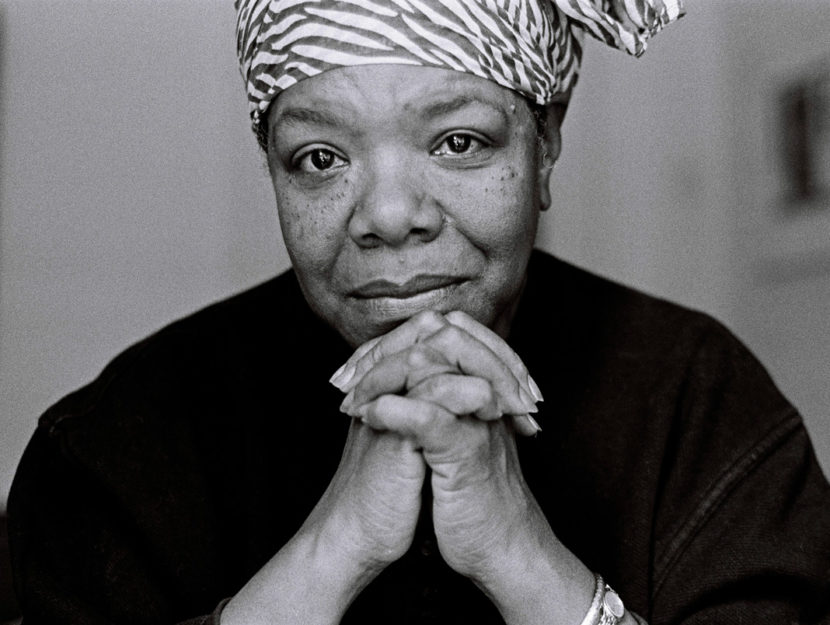
I Know Why the Caged Bird Sings
Title: I Know Why the Caged Bird Sings
Category*: Biographical
Author: Maya Angelou
About the author:
Maya Angelou was an American poet, memoirist, and civil rights activist. She published seven autobiographies, three books of essays, several books of poetry, and is credited with a list of plays, movies, and television shows spanning over 50 years. She received dozens of awards and more than 50 honorary degrees. Angelou is best known for her series of autobiographies, which focus on her childhood and early adult experiences. The first, I Know Why the Caged Bird Sings (1969), tells of her life up to the age of 17 and brought her international recognition and acclaim.
Angelou became a poet and writer after a series of occupations as a young adult, including fry cook, sex worker, nightclub dancer and performer, cast member of the opera Porgy and Bess, coordinator for the Southern Christian Leadership Conference, and journalist in Egypt and Ghana during the decolonization of Africa. She was an actress, writer, director, and producer of plays, movies, and public television programs. In 1982, she was named the first Reynolds Professor of American Studies at Wake Forest University in Winston-Salem, North Carolina. She was active in the Civil Rights Movement and worked with Martin Luther King Jr. and Malcolm X. In 1993, Angelou recited her poem “On the Pulse of Morning” (1993) at the first inauguration of Bill Clinton, making her the first poet to make an inaugural recitation since Robert Frost at the inauguration of John F. Kennedy in 1961.
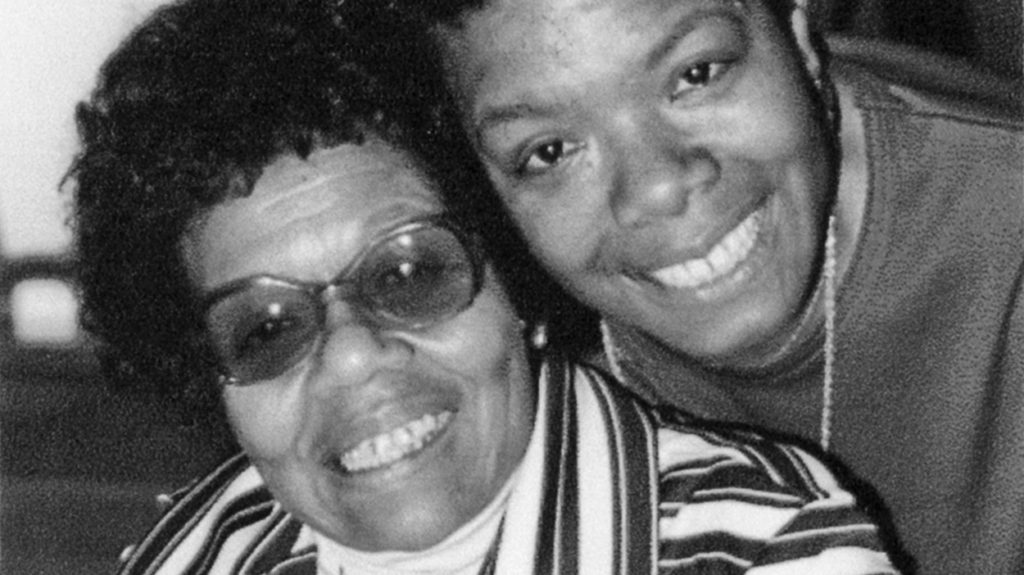
“I believe most plain girls are virtuous because of the scarcity of opportunity to be otherwise. They shield themselves with an aura of unavailableness (for which after a time they begin to take credit) largely as a defense tactic.”
Book Jacket description:
Maya Angelou’s debut memoir is a modern American classic beloved worldwide. Her life story is told in the documentary film And Still I Rise, as seen on PBS’s American Masters.
Sent by their mother to live with their devout, self-sufficient grandmother in a small Southern town, Maya and her brother, Bailey, endure the ache of abandonment and the prejudice of the local “powhitetrash.” At eight years old and back at her mother’s side in St. Louis, Maya is attacked by a man many times her age—and has to live with the consequences for a lifetime. Years later, in San Francisco, Maya learns that love for herself, the kindness of others, her own strong spirit, and the ideas of great authors (“I met and fell in love with William Shakespeare”) will allow her to be free instead of imprisoned.
Poetic and powerful, I Know Why the Caged Bird Sings will touch hearts and change minds for as long as people read.
Amazon Rating: 4.6 (3991 ratings – Canada)/4.7 (4950 ratings – US)
Goodreads Rating: 4.24 (395, 748 Ratings)

There is no greater agony than bearing an untold story inside you.

Anything someone might quibble with: To say that some people “quibble” with this book may be a bit of an understatement. While it’s widely used in classrooms of all levels, including advanced university courses, parental groups have long pushed to have it banned from curricula and library shelves because of its depictions of lesbianism, premarital cohabitation, and sexual violence, particularly her detailed recounting of her rape at the age of 8 by her mother’s boyfriend. The American Library Association listed it as the third most challenged book of the 90s, and the 6th most of the 00s. Be prepared: this book’s beautiful prose is put to work describing some profoundly difficult experiences.
“Velcro quotes” (ideas that are going to stick with me moving forward):
- “There is no greater agony than bearing an untold story inside you.”
- “All systems of oppression are adaptive.”
- “It was awful to be Negro and have no control over my life. It was brutal to be young and already trained to sit quietly and listen to charges brought against my color with no chance of defense. We should all be dead. I thought I should like to see us all dead, one on top of the other. A pyramid of flesh with the whitefolks on the bottom, as the broad base, then the Indians with their silly tomahawks and teepees and wigwams and treaties, the Negroes with their mops and recipes and cotton sacks and spirituals sticking out of their mouths. The Dutch children should all stumble in their wooden shoes and break their necks. The French should choke to death on the Louisiana Purchase (1803) while silkworms ate all the Chinese with their stupid pigtails. As a species, we were an abomination. All of us.”
- “I had given up some youth for knowledge, but my gain was more valuable than the loss.”
- “The needs of a society determine its ethics.”
- “I believe most plain girls are virtuous because of the scarcity of opportunity to be otherwise. They shield themselves with an aura of unavailableness (for which after a time they begin to take credit) largely as a defense tactic.”
Total Pages: 304
Total “pulled passages”: 102
Page to Pulled Passage Ratio**: 3:1
P2P Ranking within category for 2020: #1 of 6
Overall P2P Ranking for 2020: #6 of 17
*I break books into one of three categories in order to better compare apples-to-apples.
- Reflective: Relies on first-person stories or insights
- Biographical: Tells the story of an individual or organization from a third-person perspective
- Research-based: The author(s) collect third-party research to support their discussion of a particular topic.
**As I read, I highlight certain passages/insights that really connect with me. Things that make me think “buying this book was worth it for ideas/information like that.” At the end of the book, I go back and “pull” them from the book and copy them all into a single document. P2P Ratio indicates how many pages on average tend to go by between these particularly powerful insights. This book’s 2.7:1 ratio means I felt there was a passage worth pulling out and writing down every 2.7 pages.

